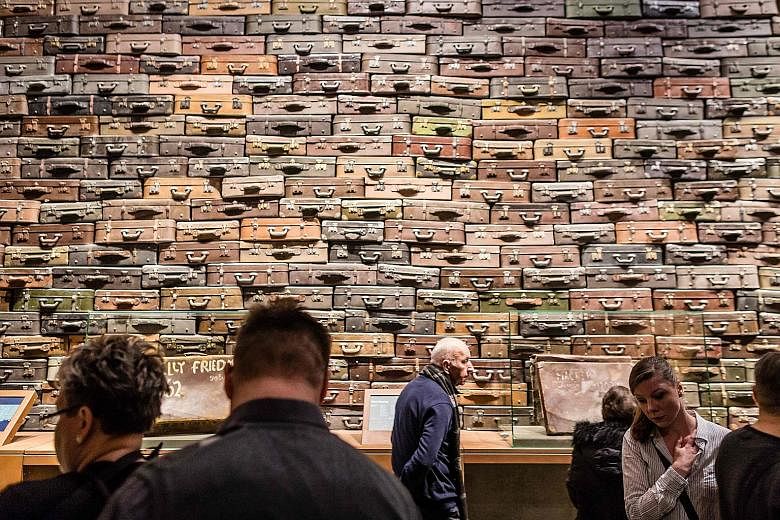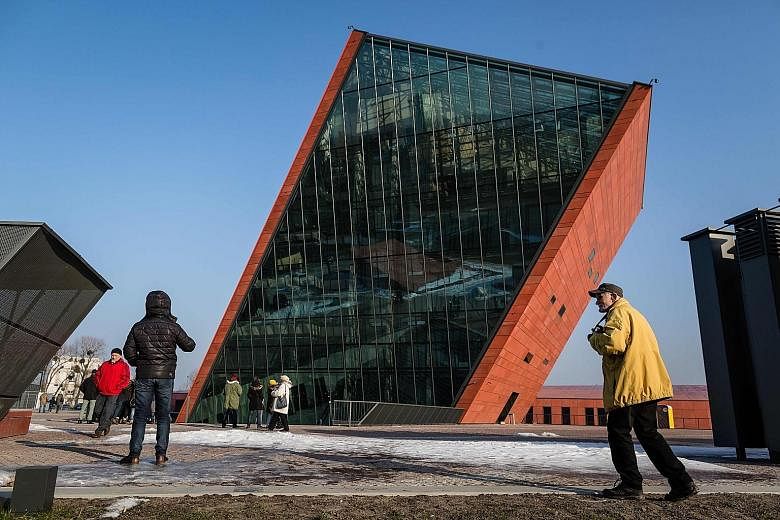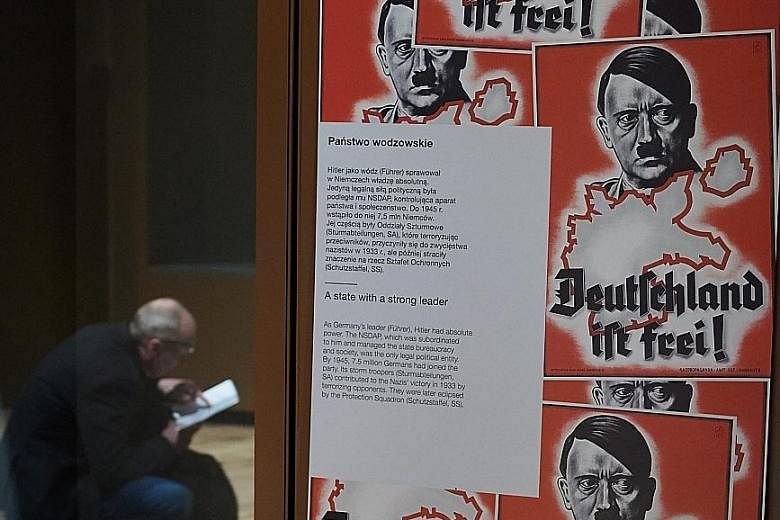GDANSK • Poles this week got their first - and possibly last - glimpse of a new Museum of the Second World War, a project slammed by Poland's right-wing government as underplaying the country's harrowing wartime fate.
Conceived by EU president Donald Tusk during his time as Poland's premier, the museum offers a sweeping panorama of the war focused primarily on civilians who made up the majority of its victims.
But the governing Law and Justice (PiS) party, led by Mr Jaroslaw Kaczynski, has shown a penchant for a more inward-looking nationalist and "patriotic" approach to everything including history. Its vision for the new museum, which opened on Sunday, is no different.
It lies near Gdansk's Westerplatte peninsula where the German navy fired the first shots of World War II by attacking Poland on Sept 1, 1939. The main exhibitions, three floors underground, offer visitors a stark look at the human toll of the war and the rise of the fascist and totalitarian politics that led to it.
A soaring wall of suitcases symbolises the mass deportation of European Jews to the death camps. The tattered shoe of a Polish child killed during the 1944 Warsaw Uprising focuses on the carnage against children. Porcelain melted by the atomic bomb the US dropped on Hiroshima bears witness to the advent of nuclear war.
World War II claimed upwards of 55 million lives, the majority civilian, according to the museum. Some 10 million were children. Poland lost around 17 per cent of its population during World War II, giving it the highest national death toll from the conflict.
A court ruling last month gave the PiS government the go-ahead to merge the new museum with another being planned - which critics say exists purely on paper - a move seen as paving the way for a change of director. That post is held by historian Professor Pawel Machcewicz, who spent the last eight years bringing the venue to life. But he is a former adviser to the liberal Mr Tusk, whom Mr Kaczynski views as his political arch-rival.
Respected Polish historian Andrzej Paczkowski said the machinations over the museum have more to do with "pure politics".
"This is part of the PiS's 'Dobra Zmiana' (Good Change) policy that has seen it systematically take over all the important public posts in Poland since its election" in late 2015, Professor Paczkowski said.
Critics accuse the PiS of installing loyalists to head key state-controlled enterprises and public institutions like TV and radio as well as pushing through personnel changes that undermine the independence of the Constitutional Court.
The moves triggered a series of mass protests and an unprecedented threat of EU sanctions over Warsaw's rule of law violations.
"The criticism that the museum neglects the Polish perspective is being used as a justification to remove Mr Machcewicz, because, of course, no one is going to admit that it's because he was chosen by a rival political party," Prof Paczkowski said.
He added that the museum's message about the unspeakable human toll of a global war could not be more timely. "We are now in a period of history when the need for a warning about the consequences of war is especially urgent."
AGENCE FRANCE-PRESSE



